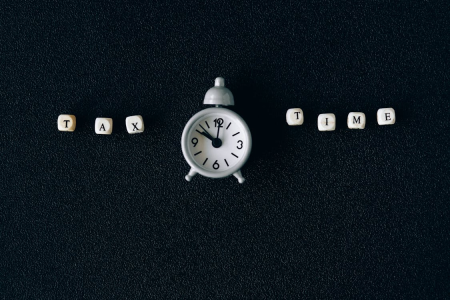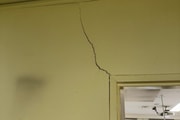Politicians want to tax inheritances again! Shouldn’t retirees have a say first?
By
Maan
- Replies 0
A new push for sweeping tax reforms has stirred debate as business, union, and community leaders gathered in Canberra this week.
Among the proposals is the return of an inheritance tax—an idea long abandoned in Australia but now being framed as a way to ease inequality.
Advocates argue the measures could unlock billions for hospitals, schools, and housing without burdening everyday Australians.
The Australia Institute released a report ahead of the government’s landmark economic roundtable, suggesting a package of wealth-focused tax changes could raise $70 billion annually.
Central to its recommendations was a two per cent wealth tax on individuals worth more than $5 million, which the institute claimed could generate $41 billion each year.
Even if family homes and superannuation were excluded, the report said the measure would still deliver $41 billion in revenue.
Australia Institute senior economist Matt Grudnoff explained that restricting the tax to just the nation’s 200 wealthiest households would still raise $12.5 billion annually.
Another proposal was the reintroduction of inheritance taxes, which existed in state and federal forms during the 1960s and 1970s.
The report argued this could deliver $10 billion annually while reducing what it called ‘intergenerational inequality’.
‘A couple of generations ago, Australia had probate and succession duties that raised 0.36 per cent of GDP, which, if reintroduced today, would deliver an extra $10 billion in revenue,’ Grudnoff said.
Critics have long dubbed such measures a ‘death tax’, though the report emphasised that many developed economies—including the US, UK, Japan, and much of Europe—already had similar systems.
‘Australia is a low-tax country that does not do a good job of taxing wealth,’ Grudnoff said.
‘Correcting this would raise huge amounts of extra revenue for essential services and ease growing inequality in Australia.’

The report also recommended scrapping the capital gains tax discount, which it said would raise $19 billion annually and help ease property affordability.
Prime Minister Anthony Albanese noted that the roundtable process had considered nearly 900 submissions from experts, industry leaders, and individuals.
‘This process has brought forth a wide range of views on everything from deregulation to tax reform,’ he wrote in an opinion piece.
Treasurer Jim Chalmers, who headed the discussions in Canberra, said the forum had also drawn on more than 40 ministerial consultations held across the country.
‘This healthy public debate has also made it clear there is substantial common ground on many issues—and that is where the immediate opportunities lie,’ Albanese said.
While the debate over inheritance taxes sparks strong opinions, there’s another side to the story that often gets overlooked—what happens when inheritances never reach their intended heirs.
Unclaimed estates are a growing issue, with millions in assets quietly slipping away each year.
It’s a reminder that planning and paperwork can be just as important as policy changes when it comes to protecting a legacy.
Read more: Lost inheritance? Why millions in unclaimed estates end up with the government

Would Australia be willing to revive old tax systems in exchange for better schools, hospitals, and housing?
Among the proposals is the return of an inheritance tax—an idea long abandoned in Australia but now being framed as a way to ease inequality.
Advocates argue the measures could unlock billions for hospitals, schools, and housing without burdening everyday Australians.
The Australia Institute released a report ahead of the government’s landmark economic roundtable, suggesting a package of wealth-focused tax changes could raise $70 billion annually.
Central to its recommendations was a two per cent wealth tax on individuals worth more than $5 million, which the institute claimed could generate $41 billion each year.
Even if family homes and superannuation were excluded, the report said the measure would still deliver $41 billion in revenue.
Australia Institute senior economist Matt Grudnoff explained that restricting the tax to just the nation’s 200 wealthiest households would still raise $12.5 billion annually.
Another proposal was the reintroduction of inheritance taxes, which existed in state and federal forms during the 1960s and 1970s.
The report argued this could deliver $10 billion annually while reducing what it called ‘intergenerational inequality’.
‘A couple of generations ago, Australia had probate and succession duties that raised 0.36 per cent of GDP, which, if reintroduced today, would deliver an extra $10 billion in revenue,’ Grudnoff said.
Critics have long dubbed such measures a ‘death tax’, though the report emphasised that many developed economies—including the US, UK, Japan, and much of Europe—already had similar systems.
‘Australia is a low-tax country that does not do a good job of taxing wealth,’ Grudnoff said.
‘Correcting this would raise huge amounts of extra revenue for essential services and ease growing inequality in Australia.’
The report also recommended scrapping the capital gains tax discount, which it said would raise $19 billion annually and help ease property affordability.
Prime Minister Anthony Albanese noted that the roundtable process had considered nearly 900 submissions from experts, industry leaders, and individuals.
‘This process has brought forth a wide range of views on everything from deregulation to tax reform,’ he wrote in an opinion piece.
Treasurer Jim Chalmers, who headed the discussions in Canberra, said the forum had also drawn on more than 40 ministerial consultations held across the country.
‘This healthy public debate has also made it clear there is substantial common ground on many issues—and that is where the immediate opportunities lie,’ Albanese said.
While the debate over inheritance taxes sparks strong opinions, there’s another side to the story that often gets overlooked—what happens when inheritances never reach their intended heirs.
Unclaimed estates are a growing issue, with millions in assets quietly slipping away each year.
It’s a reminder that planning and paperwork can be just as important as policy changes when it comes to protecting a legacy.
Read more: Lost inheritance? Why millions in unclaimed estates end up with the government
Key Takeaways
- The Australia Institute proposed $70 billion in new tax revenue through wealth-focused reforms.
- A two per cent wealth tax on fortunes above $5 million was projected to raise $41 billion annually.
- Inheritance taxes could return, with estimates of $10 billion a year in revenue.
- Scrapping the capital gains tax discount was suggested to ease housing affordability and add $19 billion.
Would Australia be willing to revive old tax systems in exchange for better schools, hospitals, and housing?








